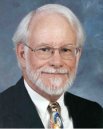|
Plenary Lecture
The Impact of Open Educational Resources, Web 2.0, and XML on Education

Prof. C. Sidney Burrus
Rice University, Houston
Texas, USA
csb@rice.edu
Abstract: Web 2.0 and XML are the basis of the next
generation of the World Wide Web. One of the areas of greatest impact will
be education. The current web and HTML have been on the first phase of
impact by giving a picture of information. The adding of metadata through
XML is the second phase which will allow "knowledge" as well as information
to be encoded in a document and make documents more machine readable as well
as human readable. Teachers and educators are only beginning to think about
how to use this but it has the potential of being the largest paradigm shift
in the history of teaching. Examples of the use in mathematics, chemistry,
and music will be given with speculation on other areas.
The Open Educational Resource (OER) movement was inspired by the Open Source
movement in computer software development. If a common format such as XML
and a common (or compatible) copyright license is used, communities of
authors, teachers, and learners come into being in a new way. They are
productive in completely new way. GNU/Linux, Wikipedia, Connexions, QOOP,
Creative Commons, GPL, OSI, Teachers without Borders, etc. are examples of
that. The coupling of educational material encoded in XML and available on
the web with the Creative Commons copyright system will not only
revolutionize education but the publication industry that feeds the current
system.
Brief Biography of the Speaker:
C. Sidney Burrus is Research Professor of Electrical and Computer
Engineering at Rice University. He received his PhD from Stanford
University, was Dean of Engineering at Rice from 1998 to 2005, Director of
the Computer and Information Technology Institute from 1992 to 1998, and
Chair of the ECE Department from 1984 to 1992. He is a Fellow of the IEEE,
has received various teaching awards from Rice, various research awards from
IEEE and others, has written 5 books and published over 200 articles on
Digital Signal Processing (DSP), and was a visiting faculty member at MIT
and at the University of Erlangen in Germany. He was a member of the
founding committee for the new International University Bremen in Germany.
Recently, he has been involved with the use of technology in education and
in eLearning. He has been on the board of Connexions since it was founded in
1999 and is now Strategist for Connexions.
|